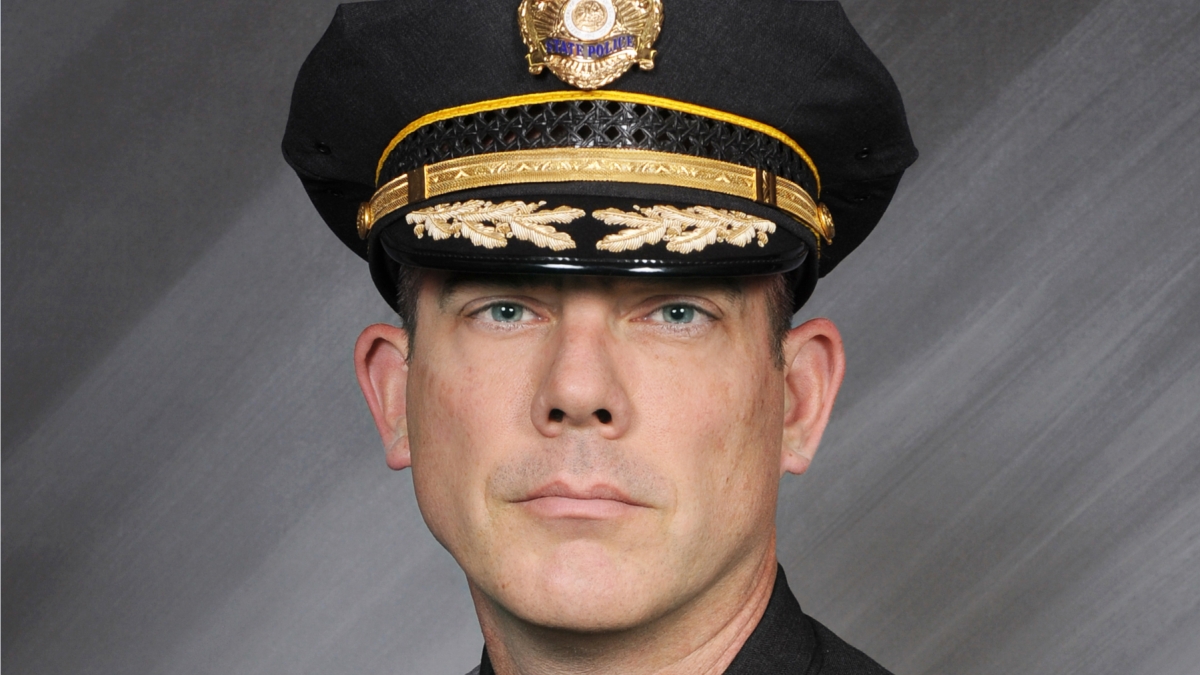ASU alum combines sustainability leadership with law enforcement

Chief W. Troy Weisler, ASU Master of Sustainability Leadership alum.
W. Troy Weisler believes stability is key for a thriving society.
As the New Mexico State Police chief and an Arizona State University Master of Sustainability Leadership (MSL) alum, he notes that environmental, criminal or health factors could threaten that stability.
Government, Weisler says, plays a key role in providing that stable foundation by protecting its citizens from those interrelated threats.
“The same individuals most susceptible to harm from environmental or health challenges are often the same members of society most likely to be harmed by crime,” he said.
“Being able to identify how those systems interact and determine the best path forward to prevent future harm and create a stable, sustainable environment for people to thrive is what MSL and the School of Sustainability is all about.”
Considering what his career would be like post law enforcement, Weisler contemplated returning to school. He was interested in finding a program that would allow him to continue to serve the public, but in a different manner.
While researching environmental science-related degrees, Weisler stumbled upon ASU’s School of Sustainability and its online Master of Sustainability Leadership.
“I knew that was the one for me,” he said. “It is applicable to almost everything, which is its biggest benefit, and I knew that ASU was the original home for that particular field of study.”
He quickly realized that the curriculum would not only prepare him for his next career but would also be applicable to his current work in law enforcement given its focus on understanding systems and being future-minded.
“The criminal justice system is a very complex system, so being able to look at that from a more holistic point of view is very beneficial,” Weisler said.
“It is also a profession that needs to maintain sustainable relationships with the communities we serve, which I think has allowed me to explore more of the social applications for the main concepts in sustainability.”
The program allowed Weisler the opportunity to look at sustainability’s role in government from a new perspective. He considered not only how agencies within government work together but also how they interact with the systems they are a part of. In having a more holistic view, they can be forward looking, and identify challenges before they fully develop.
“In today’s law enforcement I think the sustainability mentality is critically important because we increasingly need multifaceted and nuanced responses to deal with public safety problems that are complex and dynamic in nature,” Weisler said.
“If we want to deal with the root causes of problems, we cannot have tunnel vision in our outlook or be siloed in the work we do.”
The coursework inspired Weisler to keep a running log of ways he could implement class readings into his current role — one of which led to him creating the Innovation Bureau at the State Police.
The Master in Sustainable Leadership Program not only inspired new ideas for Weisler but also the advancement of skills.
Through EMS 524: Sustainability Storytelling and Communication, Weisler explored the power of effective communications that leads to a compelling call to action.
“The least favorite part of my new job is the public speaking, but because of EMS 524, I have a much better understanding of how to format and explain topics in a way that engages the audience.”
During his time in the program, Weisler also had the opportunity to learn outside of his coursework. He participated in the Frasier Global Mentorship Program, attended a GreenBiz conference and worked as a development intern with GreenLight Solutions. For his culminating experience, he worked in a group that created a sustainability plan for the Phoenix Country Day School.
Weisler says he utilizes what he learned in the Master of Sustainable Leadership program daily in his role as chief for the New Mexico State Police, whether that be analyzing the efficiency of their vehicle fleet, creating long-term strategic plans or simply communicating with officers around the state.
“I find myself using MSL concepts to identify why problems are occurring both within my agency as well as within our overall criminal justice system and then looking at ways to address those problems.”
“Government can often be siloed and overly focused on process instead of progress,” Weisler said. “The MSL program has helped me become much more forward-thinking and aware of the interconnectedness of all things in modern-day society.”
Balancing a full-time career and a master’s program required a strong support system, organization and determination. The degree being online allowed Weisler the flexibility to dedicate weekends and early mornings to schoolwork.
The effort is worth it according to Weisler, who says the program teaches you less about what to think, but rather how to think. The comprehensive approach, he adds, would aid any field in analyzing and addressing complex problems.
“It can bring value to any career.”
More Environment and sustainability
Meet the young students who designed an ocean-cleaning robot
A classroom in the middle of the Sonoran Desert might be the last place you’d expect to find ocean research — but that’s…

From ASU to the Amazon: Student bridges communities with solar canoe project
While Elizabeth Swanson Andi’s peers were lining up to collect their diplomas at the fall 2018 graduation ceremony at Arizona…

From environmental storytelling to hydroponics, student cohort crafts solutions for a better future
A select group of students from Arizona State University's College of Global Futures, a unit within the Julie Ann…

